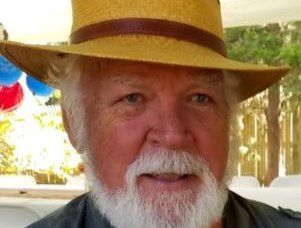Reporting From Broadway: ‘Fires In The Mirror’

A professor in the Department of Art & Public Policy at NYU’s Tisch School of the Arts, Anna Deavere Smith’s docudramas explore the vulnerability of the human spirit, and how that relates to justice, and law. As the sole performer in these productions, Smith is a powerful, seasoned actor who takes no prisoners.
Currently at the Signature Theatre, her early work “Fires in The Mirror” (1992), is getting a noteworthy revival. It’s significant, among other reasons, because it’s the first major production of Smith’s work in which she doesn’t appear. In her stead, the gifted, and charismatic actor Michael Benjamin Washington transforms into the 20-plus characters she interviewed for this piece. To watch the show with another actor playing these roles validates her depth as the creator and writer.
About the 1991 incident in Crown Heights, Brooklyn, this docudrama recounts that a Hasidic driver jumped the curb, murdering a young African American boy, and injuring his sister. In the violent clash that ensued, journalists were beaten by cops, and blacks. Finally, a visiting rabbinical student stabbed to death by black youths exacerbated the already tense racial atmosphere in the city. Fueling the rage were rumors that the Hasidic man involved in the car accident was given medical attention before the black children.
Beyond mere reportage, Smith’s docudrama delves into the search for identity in the black community. Here, an adorable teenage girl tells us how she knows she’s black. So do Al Sharpton and George C. Wolfe.
Washington creates these quick character sketches through his deftness with psychological gesture. With one hand, his young African American girl bites off a white girl’s effect by touching her hair. And his portrayal of Angela Davis resonates with supreme authority, and stillness. None of these characters would live fully, however, were it not for Washington’s strong voice, his range, and impressive diction.
He is especially resonant portraying a character with whom he has visibly less in common, the feminist journalist, Letty Pogrebin. Her commentary also speaks to the play’s message most directly. “I think it’s about rank frustration,” she opines loudly, confidently, “the old story that you pick a scapegoat/that’s much more, I mean Jews and Blacks,/that’s manageable,/because we’re near,/we’re still near enough to each other to reach/I mean, what can you do about the people who voted for David Duke?/Are Blacks going to go there and deal with that?”
Indeed, “Fire” is an affecting emotional drama, and one that stands as dramatic testimony to America’s ongoing racial tensions. Through Washington’s mastery of the piece, we’re moved to notice how impactful Smith’s stylistic innovations are.
Clearly, her work has influenced some remarkable theater pieces, Moises Kaufman’s “The Laramie Project” among them, along with Lynn Nottage’s Pulitzer Prize-winning dramas, “Ruined” and “Sweat.”
“Fires in The Mirror” runs through December 22.



